A little over a year ago, our home landlord approached Danica and myself, and told us some news. She and her partner had decided to sell the property we were living in, along with their own, in order to find something that would better suit their lifestyle as they continued to age.
She was very kind in her delivery. They had decided on this a few months before, but we had been in the midst of moving store locations, and didn’t want to stress us out during that process. She told us that they didn’t have a timeline for selling the place, but that we should keep the inevitability in the back of our minds. She told us not to worry.
We didn’t worry. We panicked.
The next month was an unrelenting fury of numbers and meetings. When we moved into the place, we had done so with the intent to buy it in the future – but for us, that future was still a few years away. We talked with some mortgage folks to see what we could do – what steps we could take to be more viable candidates for buying a place. They gave us the information, and we set about our work.
The whole process was disheartening. While the months marched on, we weren’t necessarily changing our circumstances in a wild way, we were just creating a paper trail of numbers that would present ourself in a slightly different light. One of the problems we had was pretty unavoidable. As owners and operators of our own business without other forms of income, any bank that looked at us, did so with suspicion. Two people in our same financial position, working for any other company would have been accepted with open arms. The fact that we never missed a rent, utilities, or product payment all through the pandemic meant nothing. The fact that one of the banks had a well documented history of our business, meant nothing. We were “risky”.
Now, the whole process became moot when I lucked into an unsuspected bit of generational wealth. I came into possession of some money that pushed us out of the “risky” range. We thought briefly of getting a mortgage, but the whole process had soured us on the idea. If we had gotten a mortgage, the payments were making in rent would have gone down by at least 50% per month – but we were told we wouldn’t be able to handle that. And for what? The privilege of giving a lender a ridiculous amount of extra money over the course of many years? We weren’t about to invest in a system that wasn’t going to help us, until we didn’t need help anymore. So we bought a place outright.
We were warned against making the purchase. The house is a mobile home, so folks tried to tell us it was a bad investment. That we should think about how living in a mobile home would appear. That surely, strapping ourselves to a decade plus worth of debt would be better in the long run. We soundly rejected that advice. We had found a place we liked, that fit our lifestyle, and the time we had to maintain it. It was in a great community where the lot fees weren’t out of line, and gave us a great return on what we put in. We are closing in on being small business owners who have no debts both personally, and professionally, and will likely lock that in by the end of the year, while interest rates go haywire and the cost of living skyrockets. Had we gone big, we might have been in a bit of trouble. Or at least, we would have been stuck in the monthly grind of debt payment far longer than we would like.
Thinking small is a philosophy that has been at the core of our business since the beginning. When Danica and I started Variant Edition, we knew we wanted to be a place that was welcoming to all, that would be hyper-focused on the things that we were good at. Like with all businesses, there were growing pains, most of which grew from relationships with old business partners who didn’t share our vision. We didn’t truly land until the way forward was shaped by the two of us – and while it took a while to grow back from past mistakes, our ideas kept us solvent and growing while the world exploded around us.
Lately, I’ve been doing talks with school classes from grades 1-12 that are focused around career paths. The talk is scaled to the different grades, but there are a few core elements that stay true through out.
The first, is about staying true to yourself. We explore that idea as we all draw a three panel comic of varying degrees of complexity. I have the younger grades draw at the simplest level, so I’m going to use that here as a baseline. We start by drawing three squares. They do not have to be perfect, they just have to be large enough to draw inside of. In the first square, I get them to draw themselves. The picture also doesn’t have to be perfect, it just has to be an expression of who they are. Picture yourself in your head, and try to draw it on the page. If you picture yourself while you’re drawing, it doesn’t matter how good the picture comes out. You’re thinking about who you are, and in a way, you’re getting to know yourself better.
While they’re drawing this picture, I also talk about myself and how I got into opening the store, and selling comics. I talk about how when I was younger, I would always have a backpack full of comics or graphic novels with me. It had started as a way to combat the long periods of boredom I would experience waiting around during my sister’s baton twirling or dance classes. It evolved to become a means to keeping entertained at all times, because you never know when you might get stuck waiting at emergency or while your parent catches up with someone they haven’t seen in ages. Then, it became fun to think about what my friends might like to read, and loan books to them. In my later teens, I was in a marching band and the summers were full of long bus rides to different towns and parades. There was a lot of downtime, and I had a lot of comics. This eventually led to me working in a comic shop, and finally owning one of my own, something that I absolutely love and adore.
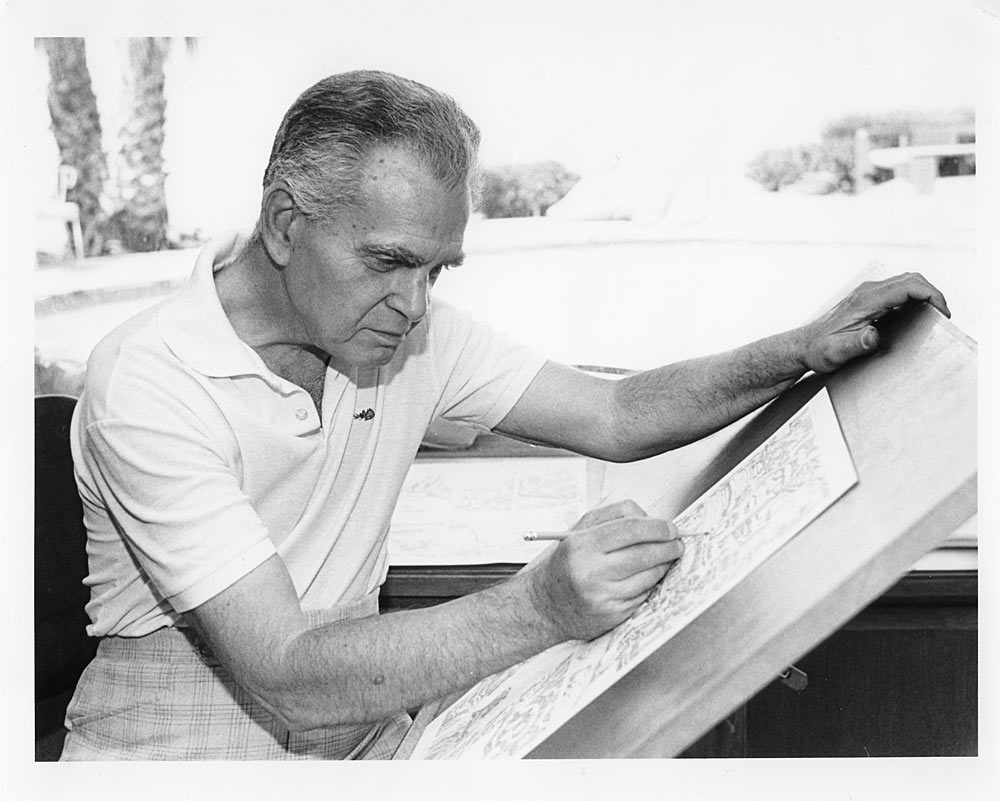
I then segue into the drawing the second panel: draw something that you like. It can be anything. A card game, a TV show, pizza, candy (the mention of which ALWAYS captures the hyper-focus of at least one kid, who will then explain to you how much they like candy, and what kinds), anything. I usually draw a picture of one of our cats, and talk about how important it is to not only know who you are, but the things that you like. The world can be a big place, with a lot of things happening. Sometimes you can get stuck just trying to keep up with everything that happens, and that will sometimes get worse as you grow older. I tell them that it is very important to be able to stop when you can, and think about yourself and the things that make you happy, and to try and keep them a part of your life as much as you can.
I talk about how that’s what I’ve done with the store that I run with my partner Danica. That we found something that we really liked, and found a way to keep it close, and to make it a larger part of our life. I always caution them that even though it is a lot of fun running a comic store, it isn’t always easy. Sometimes when you take something you love and turn it into work, it can be difficult to focus on what you liked so much about it in the first place. That, and just running a business in general can be very hard, and sometimes things happen that are out of your control. That usually brings me to talking a bit about when COVID hit.
For some of these kids, life with COVID has been everything they can remember. That was something I didn’t completely comprehend until a student in one of my early class talks asked me what it was like before COVID. I remember almost crying at the thought of that, and gently explaining that things were just… easier, and kinder, in a lot of ways. People could be less thoughtful about sharing food, or washing their hands, and now everyone is a bit better at that. I always stop myself from saying “people were less scared”, because that’s not necessarily true. I say that people were less aware of how their actions might effect other people, and now, everyone is hyper aware of our actions, and what they might mean to someone else. Generously, I note that people have reacted to this change in many different ways. Some good, and some bad.
If I’m not giving an explanation of the long, long ago, I start to talk about how it was a very scary time for our store. We weren’t sure what we were going to do when COVID threatened to shut our doors to the public. We were scared. But, as things turned out, we didn’t have to be – which prompts the third square.
For the third square, I have the kids draw a picture of someone who is important in their life. That person can be anyone, from a family member, to a friend, to a classmate or just someone that they trust. While I start drawing a picture of Danica, I start talking about how the people who surround you are so very important.
When we had to shut our doors to the public during the non-essential business shutdown, we weren’t exactly sure how things were going to go. In hindsight, we had put ourselves in a good position. We already had a website that had a good chunk of our graphic novels up. We had a great social media set up, as well as a newsletter, so our lines of casual communication were already wide open. We had already been doing in city delivery for about three years, first to help out low mobility customers (for free, once a month) and then to folks who just had a lack of time (for a fee). We also had open accounts with different book distributors who didn’t shut down entirely like Diamond had. Because of that, we were possibly the only store in the city getting in new content. (I suspect there might have been on or two others, but that being the days of the Diamond monopoly, not many other shops had yet opened accounts elsewhere).
I tell them about how always trying to get better helped make us more prepared than we thought we were, but that would have meant nothing if it wasn’t for the people around us who came together to keep us going. We always made it a point to get to know the people who would come in more than a couple of times, and share a bit of ourselves with them. We started to learn about their interests and their family, and would share in kind. In doing so, we became even a small part of their lives – so when COVID hit, our survival became very important to those people.
It was heartwarming to see and feel the support that we received. The actions of the people who were immediately around us did far more than anything else that was out in the world designed to help ourselves, and businesses like ours. That was when I first realized something truly important: while there are always big structures like various forms of governments and organizations that will try to help you out, there is nothing so immediately and uniquely helpful than what you’ll get from the people who surround you. Those people can be folks you choose to be around, like your friends, or people who are around you by circumstances, like family or classmates or neighbours.
With the comic strip done, I try to tie everything together. To start, it is always important to know who you are. It might sound weird, but sometimes you might lose sight of that. Being able to picture yourself and draw who you think you are, or maybe even the person you might want to be is very important. It is also important to know about the things that you like. It is also important to know about the things that you dislike. It is also important to share those with the people who are around you, because when you get to know someone, and they get to know you, whenever troubles arise, you can be there for each other, and know exactly what might be helpful. Talking with people and helping each other builds a community that will do their best to help you through the good, and the bad – and no matter what you want to do in life, building a positive relationship with the people around you is incredibly important.
I’ve received some decent feedback from the talks, and some brilliant artworks that some of the kids have gifted me. One kid drew a picture of me that has the words, “he believes in hisself”, which still brings a smile to my face, even if I don’t always believe it myself.
I love doing these talks for a few reasons. The first is embedded right into the talk itself: I’m going around to the community and sharing a piece of myself with others, and getting to know a piece of them in return. We’re discovering a bit about each other and learning more about ourselves and those that are around us. The second reason goes back to the store’s ideals: acting as a place for everyone and living that ideal by reaching out and expressing who we are. Those are the most important bits for us. On the side, more folks gain awareness of our little shop, and some even stop by. It helps us grow exactly in the way we want: through compassion, rather than sheer dominance.
This loops back to something else that is important to us: the ability to grow by thinking, and staying small.
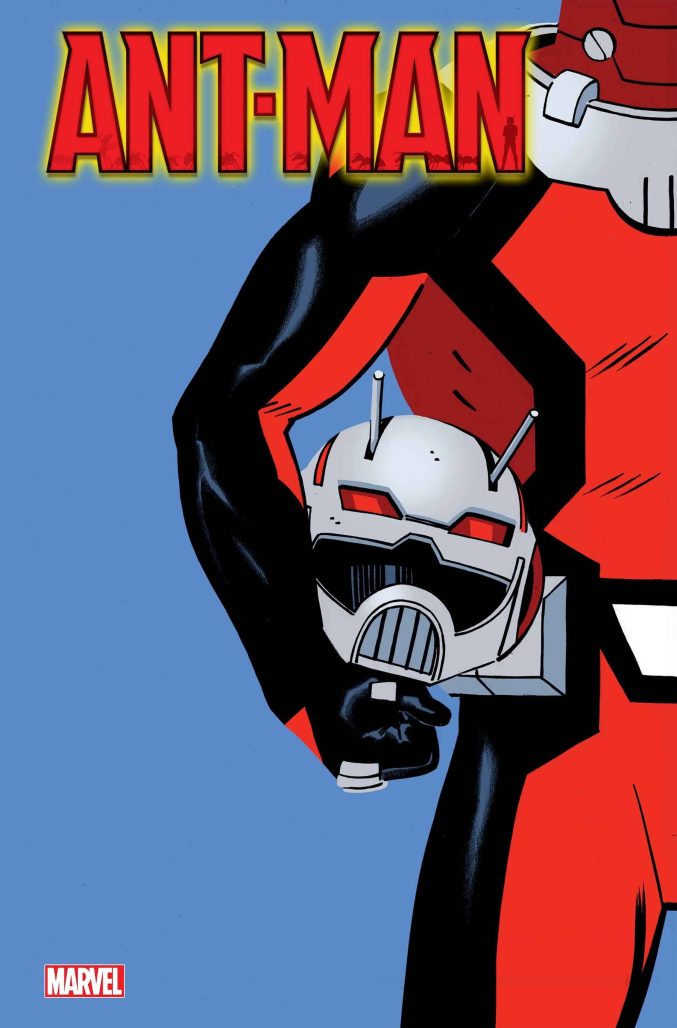
When you look around at the world we’ve built, you see these monstrous structures that we’ve allowed to subsume and take over. Huge companies that are designed to grow and protect wealth as it currently exists at the expense of almost everything and anything else. This, we’re told, is what success looks like, and many of us strive for that vision. We all just want to be comfortable, and comfort only seems to come from having more and being bigger. I’ve generally found the opposite to be true.
Unless you’re at the absolute top of the large structure, getting bigger doesn’t accomplish much – and one look at the many cries for attention from our billionaire class suggests they might be comfortable, but they are not content. There’s a hole at the centre of the need to be big and consume that never seems to be satisfied. Not only can you see it in the world where the hint of a downturn causes these big businesses to jettison large swaths of the people who feed their machines blood, but you see it in the mechanics of the comics industry and the direct market.
You look at companies like Marvel and DC, and you see what the bigger and better form of success has done to them. Eaten by larger entities, the structures have become beholden to the unfeeling needs of a larger structure. To illustrate this point, I want to talk about the opening bit of Tom Brevoort’s Substack post this week. In it, he details and interaction he had with a creator, regarding another that was down on their luck, and how Tom speaking of this person in friendly terms meant he would or should help this person out. The piece should be read as a whole for greater context, but this section has been living in my bones for a while:
“…when you’re dealing with creators whose livelihoods are intrinsically connected to their ability to get high-paying gigs and you are one of the ones responsible for handing out those gigs, there’s an expectation in friendship that you will use your abilities to assist your friend. To me, though, doing so would be a violation of the Editor’s primary responsibility, which is to the project he or she is shepherding. I must make creative choices honestly, and not be swayed by personal relationships. The audience doesn’t care if so-and-so is my friend, they only care about the work and whether or not it’s worth the cover price they’ve payed to peruse it. And that unspoken understanding that friends help friends out, the expectation that I would use my position to help people into assignments I didn’t think they were legitimately the best person for, is one of the main reasons why I keep so many people in the business at arm’s length.”
It is a cold bit of dialogue, but it comes from a person who has remained in his position so long for good reason. A company the size of Marvel, it does them no good to be kind in the face of what they are needed to generate. Kindness might be offered from time to time, but those instances tend to be the exception, rather than the rule.
Breevort is not wrong to act this way, given the structure of this world. It is the reason he’s survived many different editors-in-chief with different ideas on how the lines should function. It is the reason he has survived any slashing that comes from even higher up the chain, despite how many companies attack long-tenured job holders to free up money for more inexperienced bodies.
Yet retailers like to go around wondering why companies like Marvel and DC don’t seem to be supporting direct market retailers like they used to. They wonder how book chains can run BOGO deals on Image product, or why companies like Boom! run Kickstarters1. The truth is pure and simple: when you’re big, you can’t afford to be caring. In some cases, you can barely afford to keep moving without someone deciding that the work you’re doing could be done for less using someone or something else.
That’s a big reason why I don’t care to pretend like we’re all in this together. As individuals, we can be. As peers and member of a community, we are. But as entities? Absolutely not. The structure just isn’t built for that.
That’s a huge reason why I like being small. I like running the shop and talking with people. I like writing these columns and commiserating with all of you. I like the kindness it affords me, and the clarity it gives my actions. I also think being small is the safest way to stay in business, and stay happy.
There’s absolutely no secret that times are getting tougher all over. Comics retail has not been spared this hardship. The splintering of distributors and the rising costs of utilities, rent, supplies and shipping have eaten away a chunk of time and money from us all. Help is not going to come from the publishers. At least, not in a meaningful way shaped for our individual businesses.
What we can do, are small things. We can share our needs with each other. Our wants. We can do so in a way that doesn’t demand compliance to another’s structures, but in a way that helps us understand how each and every one of us run. We can offer advice. We can discard advice. We can look at the things that are working and focus on building those up. We can do this in the face of what we are offered, from structures too large to care, and we can build new things. New ways.
While the machine always needs blood, retailers too often forget that we control the supply. Many retailers act as though the opposite is true – Marvel and DC provide us with blood to keep our own machines running. While that might be true for some, real health as a small business can only come when you seize control of the blood supply. If you’re not sure why a book exists, do not support it. Don’t even think about it. Drop it entirely from the energy you put out into the world, because you have better things to focus on. Use that energy to and put it into books that build out a solid answer to why. If a book has a vibrant answer to why it exists, and it gives you life, chances are you’ll be able to connect that book to others. You’ll start feeding the machine in a more positive way – and as that input reaches higher and higher, the structure will be forced to move towards the best methods of supply.
Thinking small and being small is the best way to create change in this world. I feel like it is the key to my business’ success. We don’t do back issues. We don’t do toys, or games or cards. We do modern comics, and graphic novels, and we do them well. Each and every year, for our past (nearly) eight years, we’ve grown. This past year we were up 16% year to year. Our December? Was up by 80% year to year. Our January was up by 35.9%. (Made more impressive by the fact that some of our bulk customers have been scaling back SIGNIFICANTLY as of late). We stopped giving air to the books and the practices that occurred because the uncaring structure of being large demanded it, and we focused on what we do best: connecting people with the stories they never knew they loved.
This is the way forward. This is where we should be. Small, vibrant, working on ourselves and with others to build something better, providing the change this system so desperately needs. We can absolutely do this, but it starts by discarding the traditional ideas of success. It starts by refusing to tie yourself to mortgages and structures that could care less about your welfare, in any way you can. For many, that will be hard, because inertia is one hell of a drug. But I’m telling you, it can be done. Take every opportunity you can to look at how things are running and hack away at the dead bits. Continue to look around and build connections with the people around you, and the product that deserves it.
The direct market isn’t great right now. Honestly, I don’t think it ever was. But that doesn’t mean tomorrow has to remain the same.
In the immortal words of Tom Spurgeon, let’s “save this industry into the ground”.
——
The Indirect Market is written by Brandon Schatz, with edits and contributions by Danica LeBlanc. For more of Brandon’s writing on comic book retail and the industry at large, check out his Substack at theindirectmarket.substack.com
1To be fair to Boom!, their Kickstarters do contain instructions on how retailers can participate in getting Kickstarter exclusive content for their customers, but that doesn’t stop folks from complaining.


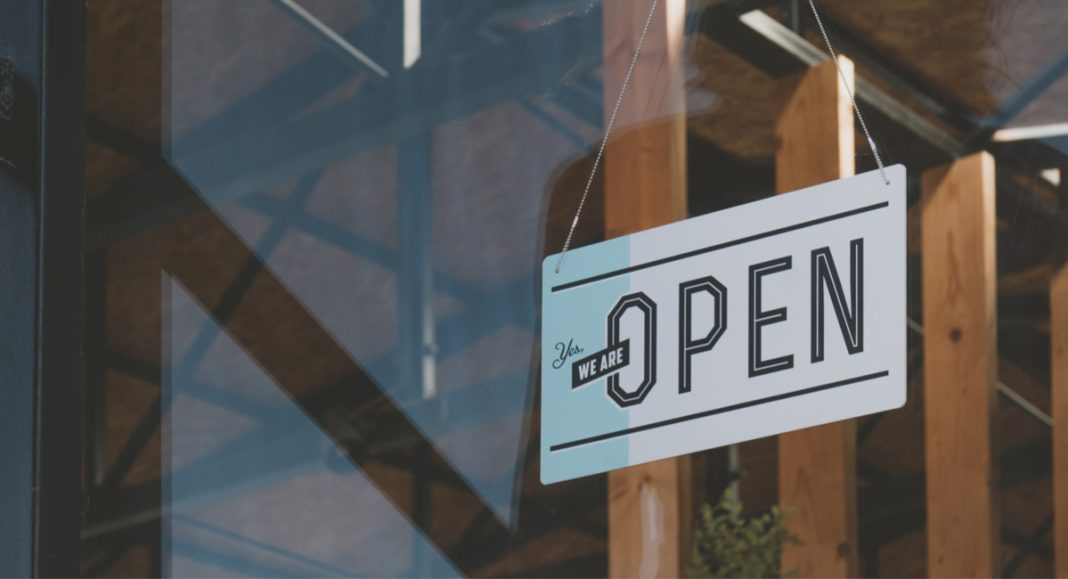
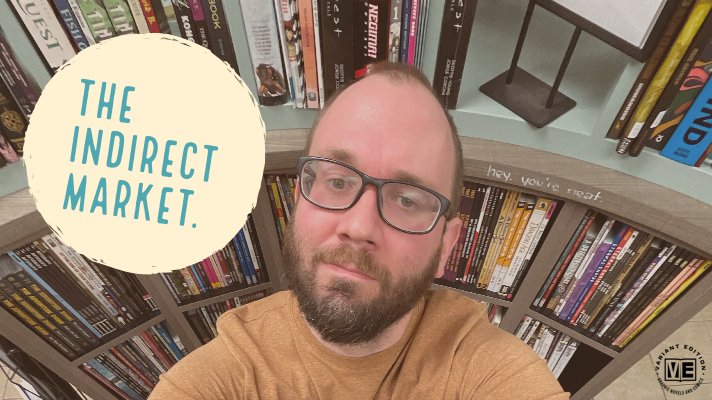

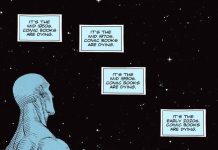





Good column, but I think it’s incorrect to interpret Brevoort’s policy on hiring as a symptom of the large scale corporate machine. It’s a bad idea to hire someone unsuited for a job at any scale, and in creative fields that might even be more important for small publishers than big. Marvel, for instance, have more scope to use a beloved less-than-hot creator on a minor, corporately mandated book in their line whereas a small publisher might not.
Comments are closed.